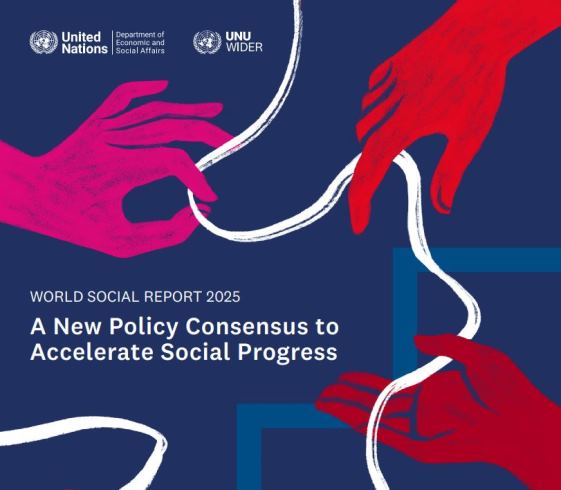
Digital technologies can be a double-edged sword depending on how they are used. This means that while digital technologies offer great benefits—such as improving efficiency, connectivity, and innovation—they also come with risks. For example, they can be misused for cybercrime, invasion of privacy, or spreading misinformation. How we choose to implement and regulate these technologies will determine whether they enhance or harm society.
Thus, the UN report, WORLD SOCIAL REPORT 2025: A New Policy Consensus to Accelerate Social Progress, says digital technologies have long promised great potential and have become an unavoidable feature of modern life. They have helped improve accessibility and efficiency and made life easier for many.
It is estimated that digital technologies could accelerate the achievement of 70 percent of the SDG targets.
Over time, technological capacities have continued to expand, for example with the arrival of AI systems, further raising the potential for human progress.
Communication technologies in particular, such as social media, have the potential to bolster social cohesion by increasing exposure to diverse groups of people. The ability to rapidly and massively spread information enabled by these technologies can support collective action and mobilization. Social media allows institutions to relay crucial information faster and more efficiently to their target audiences.
It has also been instrumental in the articulation and evolution of many social movements worldwide, where people have come together in support of human rights, environmental protection, gender equality, and economic, social and cultural rights, among others.
The report notes that an estimated 63 percent of the world population is online, but digital divides exist across regions, rural and urban areas, and by age, gender, and income levels. Over 90 percent of people use the internet in high-income countries, compared to only 27 percent in low-income countries. These divides become more meaningful as online technologies open opportunities for social, political and economic inclusion – through innovations in education, health, employment, civic participation, social protection, and more.
At the same time, the report notes that digital technologies and AI are eroding social cohesion. The use of digital technologies and AI in social, political and economic life is reportedly creating new challenges and risks that are endangering progress and eroding social cohesion. This situation is raising the stakes on an urgent need for effective cooperation on governance and human oversight of technological advancements, the report says, noting that AI could contribute to labor force displacement and increases in income inequality, widen gaps in social inclusion, empower non-State actors, deepen divides in access to technologies and its benefits, and contribute to climate change through a large environmental footprint, among others. The expanding frontiers of digital technologies have ushered in a new era for mis- and disinformation, with threatening implications for social cohesion.
The introduction of AI has made possible new forms of misinformation including, for example, media that is synthetically or artificially produced or altered by automated means. An example of such disinformation are deepfakes, or the creation of visual or audiovisual media using someone’s likeness to generate false content that convincingly impersonates and deceives.
Mis- and disinformation are being employed by politicians and even states as a tool to influence perceptions for political and other gains. This is worrisome, considering the possibilities that digital technologies offer, especially to those with privileged access to information, such as is often the case with politicians and state institutions.
The World Social Report is the flagship publication on major social development issues of the Department of Economic and Social Affairs (DESA) of the United Nations Secretariat. The 2025 report was prepared by the Division for Inclusive Social Development (DISD) in DESA and the United Nations University World Institute for Development Economics Research (UNU-WIDER).




